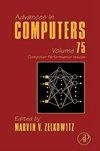Online Dispute Resolution Simulation
4区 计算机科学
Q1 Computer Science
引用次数: 1
Abstract
Online dispute resolution (ODR) simulation workshops are designed to provide students with a virtual learning environment that empowers our students to gain legal and digital skills for their readiness in future employment. Students are invited to act as complainants, opponents and arbitrators/mediators to resolve a real-life case in a team-based, student-centred and research-informed teaching and learning environment. The ODR simulation workshops have been conducted by the author among both undergraduate and postgraduate law students since 2007 at Brunel University and other places. This ongoing project was initially funded by the Nominet Trust in 2010. Throughout these years, ODR simulation workshops have been well-received by students from different cultures, particularly where English is not their first language. Students were asked to conduct online arbitration or mediation hearings and submit arbitral awards and mediation settlements, as well as delivering technical observation notes and group presentations after the process. This article promotes the use of ODR simulation to effectively enhance students’ learning experience, legal skills (i.e. critical thinking, legal reasoning, problem-solving skills) and digital skills. It puts ODR simulation into the context of the shift in teaching approaches in the digital age and explains how modern legal education can be shaped to prepare for digital lawyering. Keywords: online dispute resolution; online arbitration; digital literacy; digital empowerment; artificial intelligence; digital lawyering; flexible learning; team-based learning; student-centred learning, research-informed teaching.在线争议解决模拟
在线争议解决(ODR)模拟研讨会旨在为学生提供虚拟学习环境,使学生能够获得法律和数字技能,为未来就业做好准备。学生被邀请扮演投诉人、反对者和仲裁人/调解人,在以团队为基础、以学生为中心和以研究为基础的教学环境中解决现实生活中的案件。自2007年以来,作者在布鲁内尔大学等地的法学本科生和研究生中开展了ODR模拟讲习班。这个正在进行的项目最初是由Nominet信托基金于2010年资助的。这些年来,ODR模拟研讨会受到了来自不同文化背景的学生的欢迎,特别是那些英语不是他们第一语言的学生。学生们被要求进行网上仲裁或调解听证会,提交仲裁裁决和调解协议,并在此过程后发表技术观察笔记和小组报告。本文提倡使用ODR模拟来有效提升学生的学习经验、法律技能(即批判性思维、法律推理、解决问题的能力)和数字技能。它将ODR模拟置于数字时代教学方法转变的背景下,并解释了如何塑造现代法律教育,为数字律师做好准备。关键词:网上纠纷解决;网上仲裁;数字素养;数字授权;人工智能;数字律师;灵活的学习;团队学习;以学生为中心,以研究为导向的教学。
本文章由计算机程序翻译,如有差异,请以英文原文为准。
求助全文
约1分钟内获得全文
求助全文
来源期刊

Advances in Computers
工程技术-计算机:软件工程
CiteScore
5.40
自引率
0.00%
发文量
58
审稿时长
>12 weeks
期刊介绍:
Since its first volume in 1960, Advances in Computers has presented detailed coverage of innovations in computer hardware, software, theory, design, and applications. It has also provided contributors with a medium in which they can explore their subjects in greater depth and breadth than journal articles usually allow. As a result, many articles have become standard references that continue to be of significant, lasting value in this rapidly expanding field.
 求助内容:
求助内容: 应助结果提醒方式:
应助结果提醒方式:


